Sexual Assault Lawyer in Toronto

Get Legal Representation From Trusted Sexual Assault Lawyers
At Pyzer Criminal Lawyers, we understand the immense shame and distress that accompanies such allegations, especially when wrongly accused. Our team of experienced sexual assault lawyers is devoted to offering compassionate and strategic legal support, tailored to each client's unique situation. We are dedicated to pursuing justice, advocating tirelessly for our clients, and ensuring they receive fair treatment and due process.
What is Sexual Assault?
Sexual assault is defined in section 271 of the Criminal Code of Canada and involves engaging in a sexual act with another person without their explicit consent. Consent is a crucial element as outlined in section 273.1(1), requiring it to be informed, voluntary, and maintained throughout the interaction. Any sexual activity without clear, ongoing consent, including unwanted touching or more violent acts like rape, is considered sexual assault.
Additionally, sexual activity with individuals below the age of consent, even if they agree, is legally classified as sexual assault under section 150.1(1) of the Criminal Code. This highlights the importance of understanding and respecting age-related consent laws.
Canada's Criminal Code does not specify a single definition for sexual abuse or assault due to the wide range of acts that fall under these terms. While "sexual abuse" is often used to describe unwanted sexual contact, the legal terminology categorizes all non-consensual sexual acts as sexual assault.
What is Sexual Interference?
Sexual interference, as outlined in section 151 of the Criminal Code, is a criminal offence in Canada aimed at protecting minors from sexual exploitation and abuse. This offence involves touching, either directly or indirectly, any part of the body of a person under the age of 16 with a sexual purpose, whether the touching is done with a body part or an object.
Importantly, the law specifies that individuals under the age of 16 cannot legally consent to sexual activity with an adult. This provision ensures that any sexual interaction with minors is subject to criminal prosecution, highlighting the protective measures in place to safeguard young individuals from sexual exploitation.
What is an Invitation to Sexual Touching?
Invitation to sexual touching is defined under section 152 of the Criminal Code and is designed to protect minors from being enticed into sexual activities. This offence occurs when someone invites, counsels, or incites a person under the age of 16 to engage in sexual touching, whether it involves the minor themselves, the accused, or another person. The law also covers situations where someone encourages two minors under 16 to touch each other for sexual purposes.
Crucially, actual physical contact is not necessary for this offence to be committed. The mere act of inviting or encouraging a minor to engage in sexual touching is enough to warrant prosecution. This law underscores the importance of safeguarding the physical and psychological well-being of minors, ensuring they are protected from sexual exploitation and manipulation.
What is Sexual Exploitation?
Sexual exploitation, as outlined in sections 153 and 153.1 of the Criminal Code, occurs when an individual in a position of trust, authority, or a dependency relationship with a young person aged 16 or 17 engages in or incites sexual activity with them. A 16 or 17-year-old cannot legally consent to sexual activity if their partner holds a position of power over them.Actions constituting sexual exploitation include touching the young person for a sexual purpose or encouraging them to engage in sexual touching. This offence recognizes the inherent power imbalance and seeks to protect vulnerable youth from being manipulated or abused by those they should be able to trust.

Elements of a Sexual Assault Charger
Understanding the elements of sexual assault is essential for distinguishing this serious criminal offence from others. Sexual assault charges can be broken down into three critical components:
- Absence of Consent: The cornerstone of a sexual assault charge is the absence of consent. Consent must be informed, voluntary, and specific to each act. It is not present if the individual does not agree, withdraws consent during the act, is unable to consent due to incapacitation, or is below the legal age of consent. Consent cannot be legally given under pressure, manipulation, or when under the influence of substances.
- Unwanted Physical Contact: Sexual assault involves a range of non-consensual sexual acts, from inappropriate touching to severe forms of violation. Any form of sexual contact without clear and voluntary consent falls under this category.
- Intent: To be charged with sexual assault, the perpetrator must either understand or be reckless about the lack of consent. This means the person either knew there was no consent or ignored clear indications of non-consent.
These three components—absence of consent, unwanted physical contact, and perpetrator's intent—are essential for understanding and identifying sexual assault within the legal framework.
Types of Sexual Assault Charges That We Defend
Canadian law recognizes several types of sexual assault charges, each defined by the severity of the offence and the presence of aggravating factors.
At Pyzer Criminal Lawyers, our experienced team is adept at defending clients facing a spectrum of sexual assault charges across Toronto and Ontario. Through meticulous evidence analysis and strategic legal approaches, we uphold our clients' rights and ensure a fair examination of all allegations.
Common Sexual Assault
Sexual assault, as defined in section 271 of the Criminal Code, involves engaging in a sexual act without the victim's consent, thereby violating their sexual integrity. This offence can occur in various settings, such as intimate relationships, social events, or public places, and does not require physical injuries to be present.
Sexual Assault With a Weapon, Threats to a Third Party or Causing Bodily Harm
Sexual assault causing bodily harm, outlined in section 272 of the Criminal Code, is a grave offence that involves certain aggravating factors, making it more severe than other forms of sexual assault. This offence includes scenarios where the assailant uses, carries, or threatens to use a weapon or an imitation weapon during the assault, threatens to harm a third party, causes bodily harm to the victim, or chokes, suffocates, or strangles the victim. Additionally, being an accomplice to the offence with another person also falls under this category.
The penalties for sexual assault causing bodily harm are significantly harsher, especially when a weapon or threats are involved. These cases are classified as indictable offences, meaning they are serious crimes that must be tried in a superior court.
Aggravated Sexual Assault
Aggravated sexual assault, as defined in section 273 of the Criminal Code, is one of the most severe sexual offences. This crime occurs when a sexual assault results in significant bodily harm to the victim, such as wounding, maiming, disfiguring, or endangering their life. Due to the serious nature of the injuries involved, aggravated sexual assault carries severe legal consequences upon conviction, reflecting the gravity of the offence.
Defending Against Sexual Assault Charges in Toronto
In Toronto, our experienced defence lawyers employ various strategies to protect the rights of the accused and challenge the prosecution's case. These defences can include arguing consent, mistaken belief in consent, challenging the identity of the perpetrator, disputing the occurrence of the alleged sexual activity, and leveraging Charter rights violations.
Consent as a Defence
Consent is a fundamental defence in sexual assault cases, where the accused argues that the sexual activity was consensual, meaning both parties willingly agreed to engage in the act. Legally, consent must be active, informed, and ongoing throughout any sexual interaction. It cannot be given if an individual is unconscious, under the influence of drugs, or if obtained through threats, violence, or abuse of power.
Our defence strategy involves meticulously gathering and presenting evidence that demonstrates consent was given. This includes communication records, witness testimonies, and behaviours indicating mutual agreement. By understanding the nuances of consent and applying them to the specific circumstances of our client's case, we aim to build a robust defence.
Mistaken Belief in Consent
Mistaken belief in consent as a defence is used when the accused genuinely believed that consent was present, even if it was not. To be successful, the accused must demonstrate that their belief was reasonable under the circumstances. This involves examining the accused's interpretation of the complainant's actions and words, ensuring there was no recklessness or willful blindness to the lack of consent. Our strategy includes carefully analyzing the communication and context between the parties to establish the reasonableness of the belief in consent.
Challenging Identity
Challenging the identity of the perpetrator is a common and effective defence in sexual assault cases. The accused may present an alibi or other evidence, such as witness statements, surveillance footage, electronic records, or DNA evidence, to show they were not present at the scene of the alleged assault. Additionally, questioning the accuracy and reliability of witness testimony can cast doubt on the prosecution's claims. Our team’s experience in handling such defences is crucial for disproving allegations and demonstrating our client's innocence.
Charter Defence
In Canada, the Charter of Rights and Freedoms offers several protections to individuals charged with a crime. A Charter defence argues that these rights were violated during the investigation or prosecution. Common violations include unlawful search and seizure, improper interrogation conduct, and denial of a fair trial. If a Charter violation is proven, it can lead to the exclusion of evidence, reduction of charges, or even dismissal of the case. An experienced defence lawyer is essential in identifying and arguing these violations to protect the accused's rights.
Each of these defences requires a thorough understanding of the law and meticulous preparation. An experienced defence lawyer can strategically apply these defences to protect the rights of the accused and ensure a fair trial.
Importance of Early Legal Intervention and a Skilled Criminal Lawyer
Early legal intervention is crucial when facing criminal charges, particularly in complex cases such as sexual assault. Engaging a criminal lawyer immediately can make a significant difference in the outcome of your case.
Early Legal Intervention
Taking swift action after being charged is essential. Early intervention helps preserve crucial evidence, prevent self-incrimination, and allows for the development of a strong defence strategy from the outset. A criminal lawyer can guide you through the initial steps, ensuring that your rights are protected and that you do not inadvertently harm your case.
Initial Consultation and Case Assessment
An initial consultation with a criminal lawyer is vital for assessing your case and identifying key issues. During this consultation, the lawyer will review the facts, gather initial evidence, and begin formulating a defence strategy tailored to your specific circumstances.
Legal Representation and Rights Protection
A criminal lawyer plays a critical role in safeguarding your rights during police investigations and interrogations. They ensure that you are treated fairly and that all legal procedures are followed. Understanding the complexities of the legal system, your lawyer will navigate these processes on your behalf, providing advice and representation.
Building a Strong Defence
Building a robust defence involves several key steps. Your lawyer will collect and analyze evidence, interview witnesses, and consult with experts to challenge the prosecution's case. By meticulously examining every detail, your lawyer can identify weaknesses in the prosecution's evidence and develop a compelling defence.
Negotiations and Court Representation
A criminal lawyer is also essential in negotiating with prosecutors, aiming to reduce charges or secure a favourable plea agreement. If your case goes to trial, your lawyer will represent you in court, advocating vigorously to achieve a favourable outcome.
The importance of early legal intervention cannot be overstated. Engaging a criminal lawyer promptly ensures that your rights are protected and that you have a strong defence. If you are facing charges, seek professional legal advice immediately to safeguard your future.
Consequences and Penalties of Conviction for Sexual Assault
The penalties for sexual assault offences vary significantly based on the specifics of the crime. For sexual assault involving a victim younger than 16 years, the maximum penalty is 14 years if tried as an indictable offence, and 2 years if prosecuted summarily. If the victim is older than 16 years, the maximum penalties are 10 years for an indictable offence and 18 months for a summary conviction. More severe cases, such as sexual assault causing bodily harm without a firearm, sexual assault with a restricted or prohibited firearm, and sexual assault causing bodily harm with possession of another firearm, can lead to a maximum of 14 years imprisonment if there is no Crown election. The most severe penalties apply to sexual assault causing bodily harm when the victim is younger than 16 years, aggravated sexual assault without a firearm, and aggravated sexual assault with possession of another firearm, all of which can result in life imprisonment when there is no Crown election.
Additionally, individuals convicted of sexual assault may face ancillary sentencing orders, such as no-contact orders to protect the victim, DNA orders for inclusion in a national database, and Section 161 orders restricting access to places where children are present. The registration as a sex offender under the Sex Offender Information Registration Act (SOIRA) is no longer mandatory for all sexual offences, giving judges discretion in certain cases. However, mandatory registration remains for offences involving children with sentences of two years or more, and for repeat offenders.
Contact an Experienced Criminal Lawyer Today
A sexual assault conviction can also profoundly impact employment and social standing, making it difficult to find work, secure housing, or engage in community activities. The stigma associated with such convictions often leads to social isolation and strained personal relationships.
At Pyzer Criminal Lawyers, we understand these challenges and are committed to protecting our client's rights and seeking suitable outcomes. Our committed team recognizes the seriousness of sexual assault charges and is dedicated to providing compassionate, yet robust representation to defend your rights and advocate for your innocence.
Charged with sexual assault?
Consult an experienced sexual assault lawyer. Get a free case evaluation today.
Pyzer Criminal Lawyers has successfully employed these and countless other defences against allegations of assault, resulting in the dismissal or acquittal of the charges.
Sexual assault is a serious accusation. It is important to be represented by an experienced criminal defence lawyer if you intend to fight it.
Know your rights. If you are facing criminal offence charges contact Pyzer Criminal Lawyers for your free consultation today!
Words from Client’s We’ve Defended
Get a Free Case Evaluation
We offer a free case evaluation so that we can meet each other and determine how we can get the best outcome with your case. We will help explain your charges to you, explain the possible outcomes that may occur, and what your next steps should be. Call us today to see how we can help you.



Frequently Asked Questions
The Criminal Code defines consent in section 273.1(1), as the voluntary agreement to engage in sexual activity. The law takes into account what the individual was thinking and feeling at the time of the activity. Any form of sexual touching is only lawful if an individual, either through words or conduct, affirmatively communicates their consent. Under the Criminal Code, a person’s silence or passivity does not equal their consent.
If you can satisfy the court that the complainant actually consented to the act, you will not be found guilty of sexual assault. However, the defence of consent becomes messy when alcohol becomes involved. There are several situations in which the court deems that the complainant's consent “doesn’t count”, one of them including the complainant is incapable of consenting to the activity due to intoxication. In order to determine if consent was given, the Court will look at the parties’ words, conduct, and if reasonable steps were taken.
The legal age of sexual consent in Canada is sixteen. The law includes a “close-in-age exception,” meaning fourteen and fifteen-year-olds can have sex with someone who is less than five years older. Should an adult engage in sex with a minor sixteen years old or younger, they can be charged with criminal offences.
Since 2004, the Canadian Courts have required those found guilty of certain sex-related criminal offences to be registered in a sexual offender database.
The Sexual Offender Information Registration Act (SOIRA) establishes the National Sexual Offender Information Registry, which is a national database that contains the identity, location and other information of those found guilty of certain sex-related criminal offences in Canada.
SOIRA requires those found guilty of certain sex-related criminal offences in Canada to provide personal information and to report to police on a yearly basis so that they can be closely monitored.
It is mandatory that a judge in a case must order a person convicted of the designated offences to comply with the registration provisions of SOIRA. If the accused person receives an absolute discharge or conditional discharge for a designated offence they will not be ordered to register.
Young offenders are not subject to the Sex Offender Registry unless they are sentenced as an adult. It is possible for someone to apply for termination of their registration order for the Sex Offender Registry.

